Do You Use Gender Neutral Pronouns? by Willow Woodford
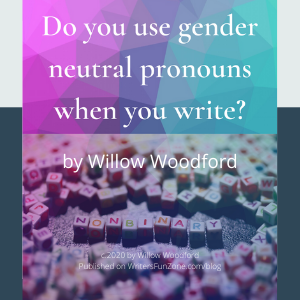 Let’s welcome back monthly columnist Willow Woodford as she shares with us: “Do You Use Gender Neutral Pronouns?” Enjoy!
Let’s welcome back monthly columnist Willow Woodford as she shares with us: “Do You Use Gender Neutral Pronouns?” Enjoy!
***
Pronouns: they soften our sentences, shorten them and make them easier to read and speak. Though today I’m primarily speaking to writers. And I’m preaching to no one. I’d simply like to give you something to think about.
“Amy lifted Amy’s foot
from the stool at Amy’s feet.”
VS.
“Amy lifted her foot
from the stool at her feet.”
Seriously, do you want to read a novel written like the first one?
‘Cause I don’t.
Traditionally, humankind has been referred to in the masculine as a default. (More about this and the language surrounding it in the links at the end.)
“One small step for man
One giant leap
for mankind.”
–Neil Armstrong
Except we aren’t all men, are we?
(Neil Armstrong claimed to have actually said, “One small step for a man.” But 1960’s audio didn’t catch it. In 2006 evidence was found that he might have been right, though Armstrong himself said he couldn’t hear it.)
As we have come to understand ourselves, and humankind, we’ve realized that there is so much more to us than meets the eye. And gender is one of those things.
Gender Neutral Pronouns and Gender Identity
Many people have come to understand that they don’t identify, in their inner selves, as male or female. Depending on how they feel or relate to the world, they may feel more comfortable with a pronoun that isn’t a part of our daily vocabulary. Yet.
“I think one of the main reasons
pronouns are important
is because, other than our name,
it’s one of the main ways
people identify and call us.”
— Rowan Hepps Keeney
I’m not going to delve into the science or cultural feelings on gender identity. I’d just like to recognize that they are a part of the society we live in.
As writers we reflect that society.
Many of us choose to include characters who don’t identify as the traditional male or female gender. I applaud you!
Culture adapts as we learn more about ourselves. And language adapts to reflect that change. One of those changes is gender neutral pronouns.
As authors, we have a responsibility to recognize and herald language adjustments. We are the ones who record them!
What are Gender Neutral Pronouns?
They are important, even if they feel strange on our tongues and in our fingers as we type.
They/Them
They/Them are the easy ones. If you don’t know, just assume. You won’t be wrong, because that is as neutral as you can get.
Yes, we’ve traditionally used they/them for plural references, but really the pronouns work.
xe/xem/xyrs or ze(zie)/hir/hirs
Others include xe/xem/xyrs or ze(zie)/hir/hirs with the pattern of she/her/hers. (Read more in the links!)
Here’s the best part!
Make Up Your Own Gender Neutral Pronouns
If you are writing a story you get to choose the pronouns for your gender-neutral characters. Or, even better, make them up! Just be sure to explain them if you make your own up.
I encourage you to write gender neutral characters. They are a part of the fabric of humanity. My friends’ words when we were discussing this article resonated with me.
“Part of how we write is knowing who our audience is.
Thinking about it in terms of those two disparate groups
could open up some possibilities.
I mean, we talk about inclusion and everything,
but it’s easy to exclude people who aren’t there yet too.”
— Suzanne Williams
Humanity comes in many colors and forms. Let’s celebrate and write about all of them! But please be careful and purposeful in choosing the pronouns you use. Correct pronouns validate an individual’s feelings about themselves and experience with the world and show respect.
Links to hear what others are saying about gender neutral pronouns
- In this video a group of students discuss their own experiences with pronoun usage.
- Here, HubSpot, discusses gender neutral pronouns and offers some suggestions about using them at work.
- The NYC Human Resources Administration policy.
The evolution of language
And because language is a passion of mine, here are some articles on how language forms and changes over time. Some of them explain why we used to say mankind, and why it’s changed.
- Mankind vs Humankind.
- Think twice before saying “mankind” to mean “all humanity,” say scholars.
- Jason Antrosio, Professor of Anthropology at Hartwick College, weighs in on Sex, Gender, & Sexuality on their blog.
***
ABOUT THE AUTHOR
 Willow lives in her imagination because it’s more interesting than the real world. When she isn’t dreaming up new stories, she likes to cook, hike, and cuddle with her chihuahua. She reads voraciously, staying up far too late, and reading anywhere she can; including grocery lines, parking lots, and waiting rooms. (Except during quarantine, because she isn’t going anywhere right now!)
Willow lives in her imagination because it’s more interesting than the real world. When she isn’t dreaming up new stories, she likes to cook, hike, and cuddle with her chihuahua. She reads voraciously, staying up far too late, and reading anywhere she can; including grocery lines, parking lots, and waiting rooms. (Except during quarantine, because she isn’t going anywhere right now!)
Her real-world counterpart, Ann Shannon, lives in New Jersey with her family and spends as much time as possible visiting her grandchildren on the West Coast.
Chat and follow Willow on Twitter: https://twitter.com/WillowWoodford.



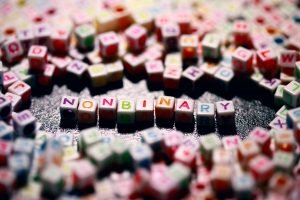

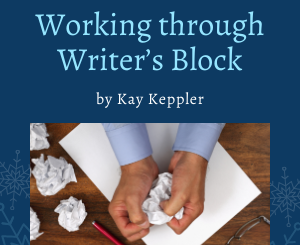
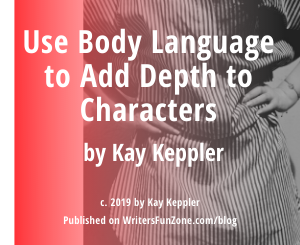
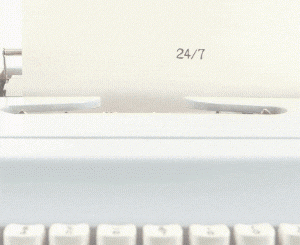



No, I use established pronouns because I feel my stories are better for them.
Gender Neutral Pronouns are a fad, we are supposed to use them to signal our virtue. As a writer, I am not very virtuous, so I feel no obligation.
Actually Gender Neutral Pronouns have been around for decades. I don’t think they’re going away. Each writer can choose to do what’s best for their story. Gender Neutral Pronouns are options in our creativity toolkit, like any other. Plus, the English evolves and will continue to do so.
There are many languages that don’t even use gendered pronouns, Armenian, Bengali and Finnish to name a few.
And a similar argument against gender neutral pronouns could be offered for feminism or segregation. Before the feminist movement women were invisible. And before the equal rights movement, anyone who wasn’t white was invisible as well, sometimes to a very dangerous end.
Of course, everyone is entitled to their opinion and their own style. I have no desire to change or challenge that. I feel that by recognizing gender neutral pronouns for my friends and family who prefer them I am allowing them their own space and identity.
As Beth said, gender neutral pronouns are a tool in our kit that we can choose to use or not. We often have many we don’t use, such as 2nd person POV. The important thing is to have them in case you need them and to understand them.